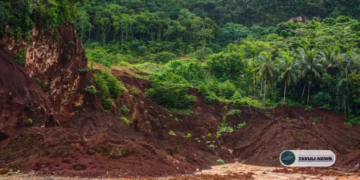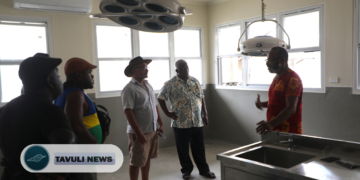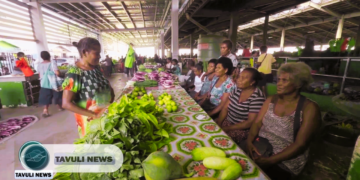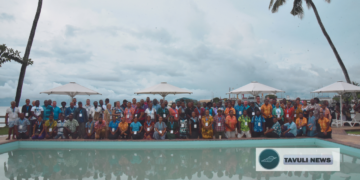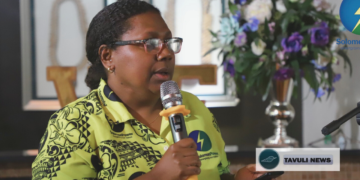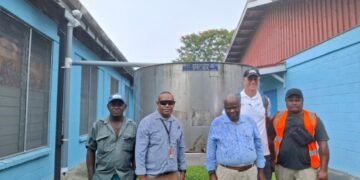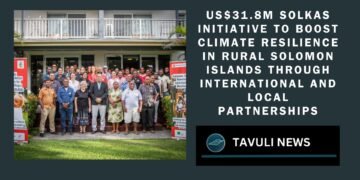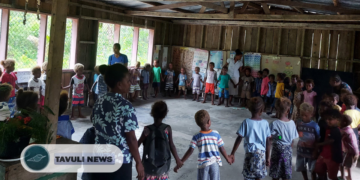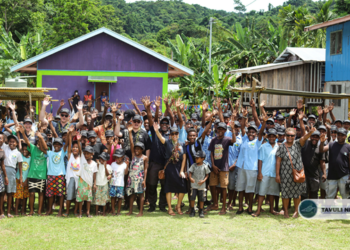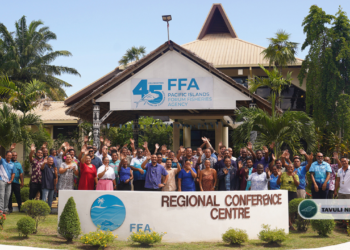Risky Sexual Behaviors Among Men Who Have Sex with Men Contribute to Rising HIV Cases in the Solomon Islands.
Disclaimer: This news article addresses a sensitive topic that may be difficult or culturally inappropriate for some readers. However, it is important to bring awareness to the rising cases of HIV, particularly among vulnerable groups, and highlight the public health risks associated with this issue. We encourage readers to approach this article with understanding, as it aims to inform and promote necessary health interventions.
In a concerning new development in the Solomon Islands, health officials are sounding the alarm over a significant rise in HIV cases, particularly among men who have sex with men (MSM). From September last year to now, seven new HIV cases have been identified, with six of them being men—between the ages of 19 to 25, highlighting a troubling shift in the country’s HIV landscape. While the other case was a female, it’s the surge in infections among MSM that’s drawing attention, prompting urgent calls for targeted interventions and increased awareness.
This new trend is critical because MSM are considered a high-risk group for HIV transmission due to the nature of their sexual practices. Unprotected anal sex, which is more common among men who have sex with men, poses a higher risk for HIV transmission compared to vaginal sex. The heightened risk comes from the delicate tissues in the rectal area, which are more vulnerable to tearing during intercourse, allowing the virus to enter the bloodstream more easily.
Dr. Rakei, Director of the HIV Program in the Solomon Islands, during the commemoration of World Aids Day at SIBC explained that this emerging trend is alarming. “From September last year to now, we’ve seen seven new cases, six of which are men who have sex with men,” he stated. “This is a new trend that needs immediate attention and more awareness within the MSM community.”
Drug Use Fuels the HIV Crisis
In addition to the rising prevalence of HIV in the MSM community, a key factor contributing to the increasing number of cases is the widespread abuse of “ice”, a potent form of crystal methamphetamine. Ice is highly addictive, and its use is becoming increasingly prevalent in Honiara, the capital of the Solomon Islands.
Drug users who share needles to inject the drug are at significant risk of transmitting HIV. The practice of needle sharing is a direct route for the virus to enter the bloodstream, compounding the HIV crisis. This is particularly concerning because the Solomon Islands is at risk of following the same trajectory as neighboring Fiji, where the combination of drug abuse and high-risk sexual behaviors has contributed to a major HIV outbreak.
The Solomon Islands government and health authorities are urging the public to be aware of the risks associated with both drug use and unsafe sex practices. Dr. Rakei warned that if steps aren’t taken now to prevent further spread, the situation could worsen. “If we don’t act now, we risk going down the same path as Fiji, where drug use has significantly fueled the spread of HIV,” he said.
Understanding HIV and AIDS
HIV (Human Immunodeficiency Virus) is a virus that attacks the immune system, making it more difficult for the body to fight off infections. Unlike some viruses, HIV doesn’t cause illness right away. It can take years before a person experiences symptoms, which is why regular testing is so important. If left untreated, HIV can develop into AIDS (Acquired Immunodeficiency Syndrome), a condition in which the immune system is severely damaged, leaving the person vulnerable to life-threatening infections and cancers.
While HIV can be transmitted through unprotected sex, sharing needles, or from mother to child during pregnancy, it can be prevented. The virus can be controlled with antiretroviral therapy (ART), a medication that helps reduce the viral load to undetectable levels, meaning the virus is not transmissible to others.
The use of condoms during sexual activity is a simple yet effective measure in preventing the transmission of HIV. Health experts emphasize that condoms remain one of the most effective methods to reduce the risk of HIV transmission, especially in high-risk communities like MSM and drug users.
The Role of Stigma and Discrimination
One of the biggest obstacles to addressing HIV in the Solomon Islands is the stigma surrounding the disease, particularly in the MSM community. People living with HIV often face discrimination, which discourages them from seeking treatment or even getting tested in the first place.
“The stigma surrounding HIV in the Solomon Islands is significant,” Dr. Rakei stated. “This leads to a lack of openness about the disease and makes it harder for people to access care.” He emphasized that it is crucial for the public to understand that HIV is a medical condition, not something that should be hidden or feared.
Health officials are calling for greater community support and acceptance of people living with HIV, urging the public to view HIV patients with compassion and as individuals who deserve the same rights and respect as anyone else.
What Can Be Done
The Ministry of Health and Medical Services (MHMS) has been working to scale up HIV awareness programs, particularly in high-risk areas such as Honiara. Health officials are focusing on increasing HIV testing, particularly among the MSM community and drug users, to help people know their status and begin treatment early. Dr. Rakei stressed that HIV testing is free and confidential, making it easier for individuals to take the first step toward prevention and care.
Efforts to distribute condoms more widely and provide education about safe sex are also critical in preventing the spread of the virus. However, Dr. Rakei emphasized that collaboration with international donors, as well as local community leaders, is necessary to keep HIV prevention programs sustainable and effective.
A Growing Concern
As the number of new HIV cases continues to rise, there is a growing sense of urgency within the Solomon Islands HIV Department. The emergence of MSM-related infections, combined with the rise in drug use, presents a complex challenge that requires a multifaceted approach. The community is being urged to take responsibility in preventing the spread of HIV by practicing safe sex, getting tested and supporting those affected by the virus.
The message is clear: HIV is preventable, and everyone has the right to know their status and access treatment. The Solomon Islands must work together to confront the stigma, educate at-risk populations, and ensure that no one is left behind in the fight against HIV.
*The spotlight on HIV/AIDS for this World AIDS Day is supported by the Asia Foundation through its Power Up Project, in collaboration with the Pacific Islands News Association (PINA), as we commemorate the activities marking the 16 Days of Activism

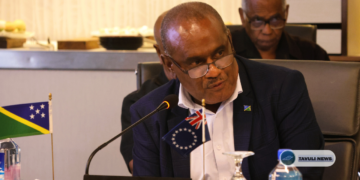
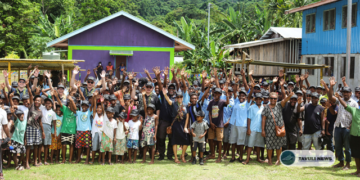

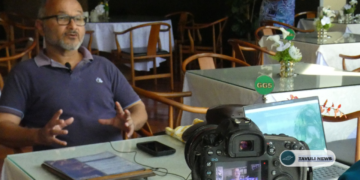
![Chovohio [left] and Charivunga [right] confluence, to create a dam for sediment control](https://www.tavulinews.com.sb/wp-content/uploads/2025/04/Add-a-heading-43-360x180.png)
